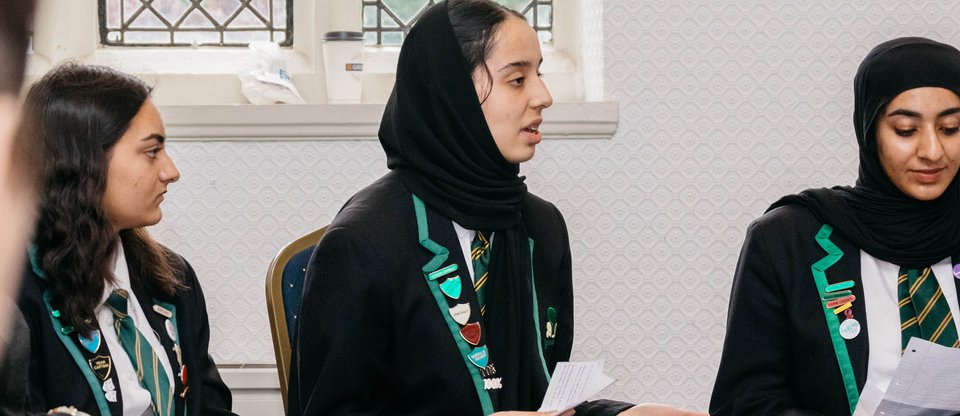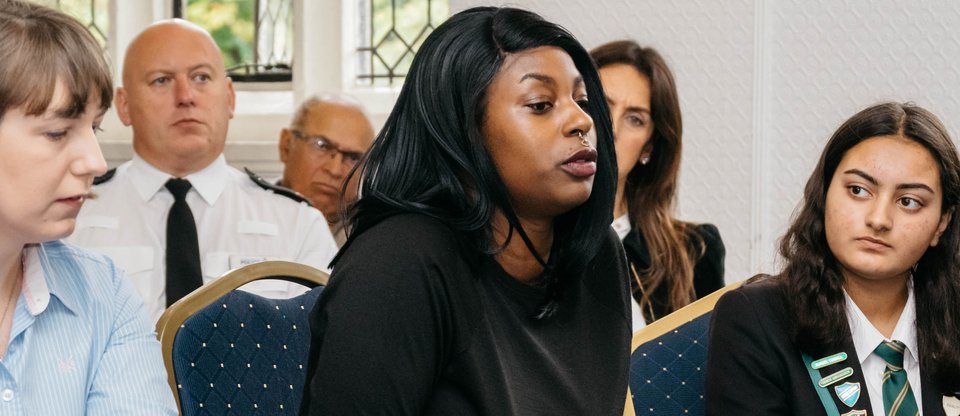Hate crime reforms urgently needed as over 1,000 participants in study point to erosion in trust in public institutions

Problems reporting hate crime to the police have been identified in a new study. As the home of the misogyny hate crime campaign, we are release excerpts from the report which will be published in full in the autumn.
Findings from the hate crime report
The most common reason for not reporting hate crime was a lack of confidence in the police taking cases seriously.
Six in ten victims of hate crimes surveyed had not reported the incident.
People of Pakistani origins are the least likely to report hate crimes.
Muslims were targeted on the basis of their religion at three times the rate of other people of faith. Muslims not only reported that they had been targeted at a proportionately greater rate, but they are also targeted more frequently.

The hate crime report
The report, co-authored by Dr Farhan Samanani and Sylvie Pope, involved over 1,000 survey responses and 246 participants in focus groups across five cities. It was commissioned as an independent piece of work to look at the experience of women and Muslim communities in particular, but tracked information across gender, race, religion and sexuality.
At a time when trust between ethnic minority communities and public institutions is under deep scrutiny, the report adds additional evidence to the public conversation on some of the ways that racism plays out in communities and the criminal justice system, too often resulting in those who are victimised by hate crime not trusting the system enough to report it.
Although there are positive examples and experiences of victims receiving justice, one key finding is that better mechanisms for reporting hate in all its forms would lead to greater trust in public institutions. The most common reason people gave for not reporting hate crime was a lack of confidence in the police taking cases seriously, or the inability of the police to respond meaningfully. Over six in ten victims of hate crime surveyed said they never reported any hate crime they had experienced.
The full report, with a foreword by Melania Geymonat Ramirez and Chris, the two women attacked in a homophobic and misogynistic attack on a North London bus in 2019 , with details on the intersectional experience of misogyny, is being released in early September ahead of the Law Commission’s report back.
Quotes from the co-authors of the report
Dr Farhan Samanani said: “Whilst British Muslims start out with higher than average trust in public institutions, including the police, experiences of frequent hate crime erode this dramatically, leaving repeat victims feeling like neither the police nor other institutions are in their corner.”
Sylvie Pope said: “The painful reality is that hate crime, in all its forms, is endemic. Yet, somehow, our institutions don’t recognise the gravity and scale of targeting. We have heard thousands of stories from people across communities, expressing the frustration, injustice and devastating impacts of racism, islamophobia, antisemitism, queerphobia, ableism and misogyny in their everyday lives. It is profoundly wrong that so many are made to feel frightened of receiving hatred and abuse, with little or no confidence that their experiences will be taken seriously. All corners of society – our institutions, politicians, public services and media - must demonstrate zero tolerance for hate. No one should be unable to live safely and freely because of who they are.”
Powerful testimony shared in the hate crime report
Focus group, Cardiff
“As you can see, I am visibly a Muslim woman wearing the Niqab as an act of faith. I used to have an Asian clothing store in Newport city centre, working every day to support my family.
“One day as I was going to my store, a man passed by and tore off my niqab. I was shocked and frightened; I couldn’t believe what happened. I fell on the ground crying and shaking like a leaf and nobody came to assist me or comfort me. Just imagine if someone tore off your daughter, your mother or your wife’s clothes. How would you feel?
“With support of [a charity], I was encouraged to report this to the police. The police came and could identify the person on my store’s CCTV and luckily he was still in the area and he was caught but then the next day he was released without any penalties as the police said he didn’t have a criminal record!
“I wasn’t happy about this decision and so I called up the police. The policewoman said to me: ‘What do you want me to do? To put him in jail?’ She was challenging me and making me feel like I had done something wrong.
“This experience has affected me a lot and lowered my self-esteem. I became so scared to go to the shop, so much so that I had to close it down. For six months, I didn’t leave the house almost ever, I was so afraid.”
Focus group, Newcastle
“It was a Turkish student – she had her hijab pulled off by a 10-year-old. And she just wasn’t herself anymore, she couldn’t leave the house anymore… And then the police, they didn’t know how to react – you know a male officer came and he said: ‘well what does it mean to have your hijab or your scarf pulled off’ and I had to say, well ‘it’s almost like having your skirt pulled off’. He didn’t know how to address the situation.”
Focus group
Recently graduated from an all-boys school. It was totally normalised to see swastikas drawn every few months, but hearing ‘Jew-jokes’ several times a day, include people hissing at him as a joke about being sent to gas chambers. It happened a lot, and got reported quite a lot, but there were almost no consequences. Someone wrote ‘kill the Jews’ on a poster, and the school refused to even look at the CCTV to try to find out who did it. It was a 13-year-old Jewish student who took down the poster and reported it.




